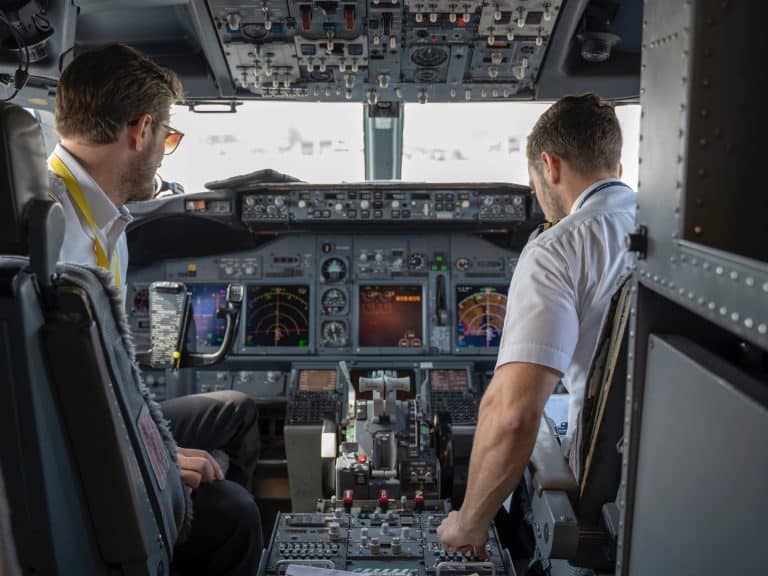So, you’ve got a passion for flying and a head for business? Maybe you’ve dreamed of running your own aviation company but don’t know where to start. Fear not! In this comprehensive guide, we’ll walk you through the essential steps to turn your dream into reality. Whether you’re looking to start a flight school, charter service, or aircraft maintenance facility, we’ve got you covered.
1. Define Your Niche
Before diving headfirst into the aviation industry, it’s crucial to identify your niche. Ask yourself: What aspect of aviation am I most passionate about? Are you interested in flight training, aerial photography, or aircraft leasing? Understanding your niche will help focus your efforts and resources.
2. Market Research
Once you’ve pinpointed your niche, it’s time to conduct thorough market research. Analyze the demand for your services, identify competitors, and assess potential risks. Understanding market trends and customer preferences will inform your business strategy and set you up for success.
Conducting Market Research:
- Identify target demographics and their needs.
- Study competitors’ pricing, services, and marketing strategies.
- Utilize surveys, focus groups, and online research tools.
3. Develop a Business Plan
A well-crafted business plan serves as the roadmap for your aviation venture. It outlines your objectives, target market, financial projections, and operational strategies. A comprehensive business plan is essential for securing funding from investors or financial institutions.
Components of a Business Plan:
- Executive Summary
- Company Description
- Market Analysis
- Marketing and Sales Strategy
- Operational Plan
- Financial Projections
4. Legal and Regulatory Compliance
Navigating the legal and regulatory landscape of the aviation industry can be complex. Ensure compliance with local, national, and international regulations governing aircraft operations, safety standards, and business licensing. Consult legal experts or aviation authorities to avoid costly legal pitfalls.
Legal Considerations:
- Business structure (e.g., sole proprietorship, LLC, corporation)
- Aircraft registration and certification
- Insurance requirements
- Environmental regulations
5. Secure Funding
Launching an aviation business requires substantial capital investment. Explore various funding options, including personal savings, bank loans, venture capital, or government grants. Prepare a detailed financial plan to demonstrate the viability of your business concept to potential investors or lenders.
Funding Sources:
- Self-funding
- Bank loans
- Angel investors
- Crowdfunding platforms
6. Acquire Necessary Equipment and Resources
Depending on the nature of your aviation business, you’ll need to invest in aircraft, training facilities, maintenance equipment, and staff. Research reputable suppliers and vendors to ensure quality and reliability. Establish strategic partnerships with aviation service providers to streamline operations. Pilot John International is a great place to start!
7. Hire and Train Staff
Recruit skilled professionals with expertise in aviation, including pilots, instructors, mechanics, and administrative staff. Provide comprehensive training programs to ensure compliance with safety regulations and industry standards. Foster a culture of continuous learning and professional development within your team.
8. Marketing and Branding
Promote your aviation business through targeted marketing campaigns and strategic branding efforts. Develop a compelling brand identity that resonates with your target audience and sets you apart from competitors. Utilize digital marketing channels, such as social media, websites, and email newsletters, to reach potential customers.
Marketing Strategies:
- Search engine optimization (SEO)
- Pay-per-click advertising
- Content marketing (blogs, videos, infographics)
- Networking events and industry conferences
9. Provide Exceptional Customer Service
Deliver exceptional customer service to build trust and loyalty among your clientele. Prioritize safety, reliability, and professionalism in all aspects of your aviation operations. Solicit feedback from customers and continuously improve your services based on their input.
10. Maintain Regulatory Compliance and Safety Standards
Compliance with aviation regulations and safety standards is paramount to the success and sustainability of your business. Implement robust safety management systems and quality assurance processes to mitigate risks and ensure operational excellence. Stay abreast of regulatory updates and industry best practices to maintain compliance.
Conclusion
Embarking on the journey of setting up an aviation business can be both thrilling and challenging. By following these essential steps and leveraging industry expertise, you can navigate the complexities of the aviation industry and build a successful venture from the ground up.
Remember to stay resilient, adapt to market dynamics, and never compromise on safety and quality in pursuit of your entrepreneurial dreams. Fly high and soar towards success in the dynamic world of aviation entrepreneurship!
Frequently Asked Questions (FAQs)
Q: How long does it take to set up an aviation business?
A: The timeline for setting up an aviation business can vary depending on various factors such as regulatory requirements, funding availability, and the complexity of the business model.
On average, it may take several months to a year or more to complete the necessary steps, including market research, legal compliance, funding acquisition, and operational setup.
Q: Do I need prior experience in aviation to start a business?
A: While prior experience in aviation can be beneficial, it’s not always a requirement to start an aviation business.
However, having a strong understanding of the industry, regulations, and operational challenges can significantly increase your chances of success. Consider partnering with experienced professionals or seeking mentorship to navigate the complexities of the aviation industry.
Q: What are the typical startup costs for an aviation business?
A: Startup costs for an aviation business can vary widely depending on the type of business, scale of operations, and equipment requirements.
Costs may include aircraft purchase or leasing, facility rental or construction, equipment procurement, staff salaries, insurance, and regulatory fees. Conducting thorough market research and financial planning can help estimate startup costs more accurately.









